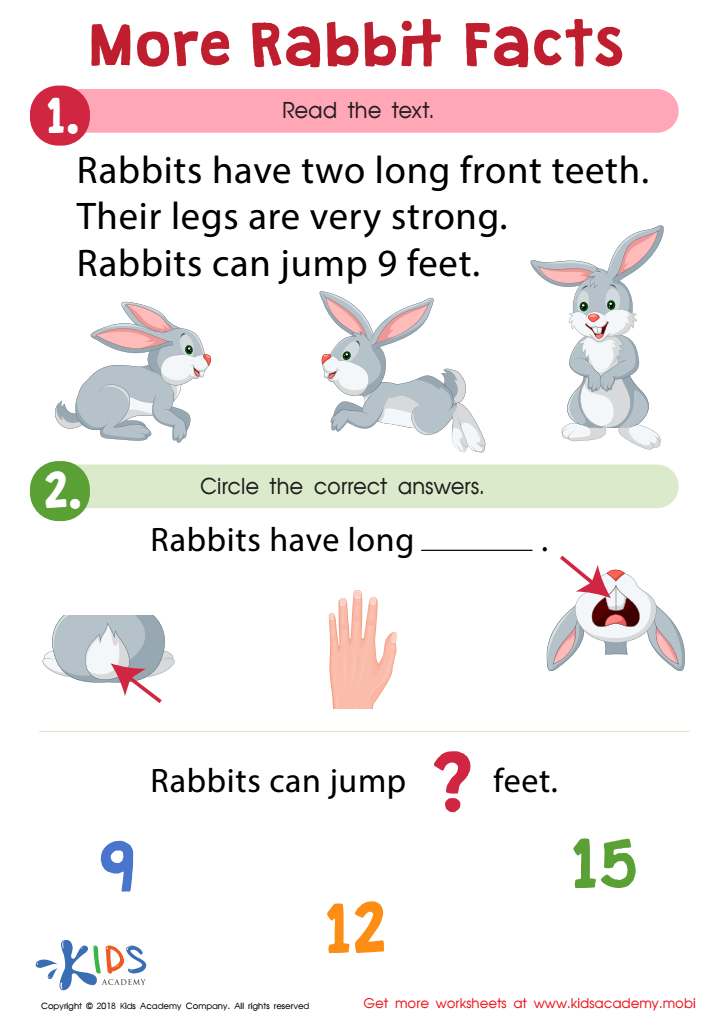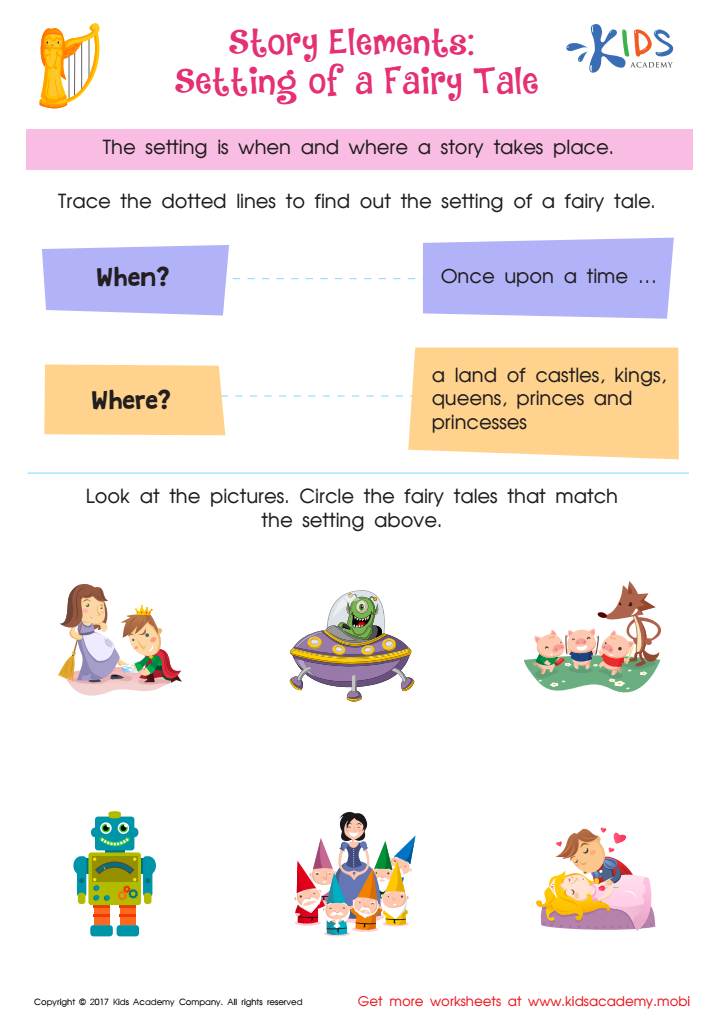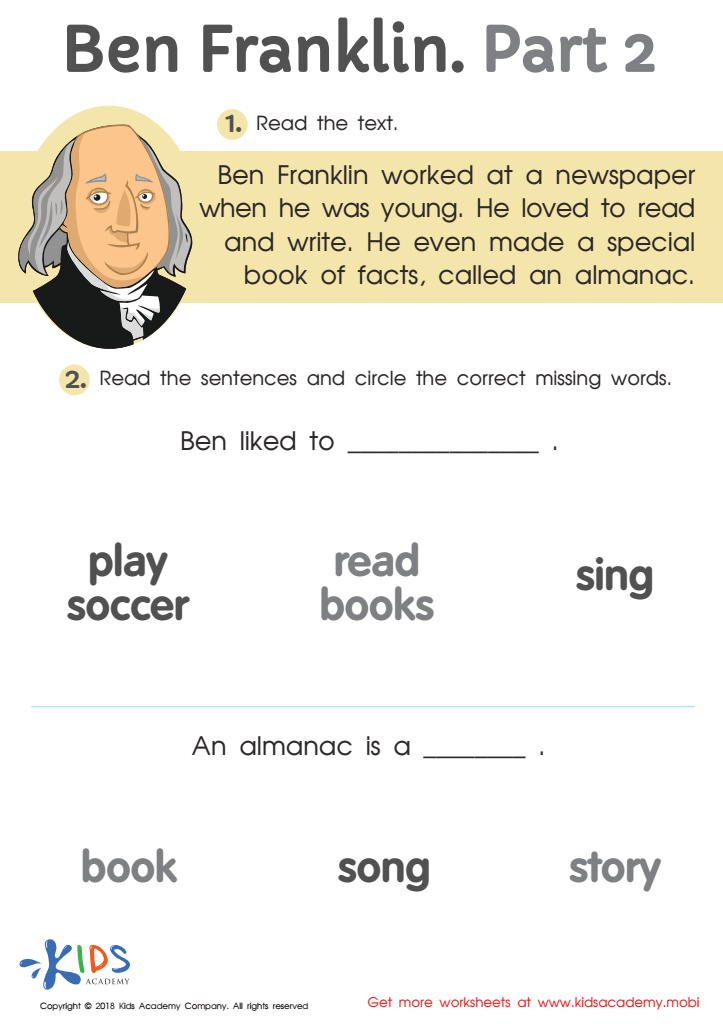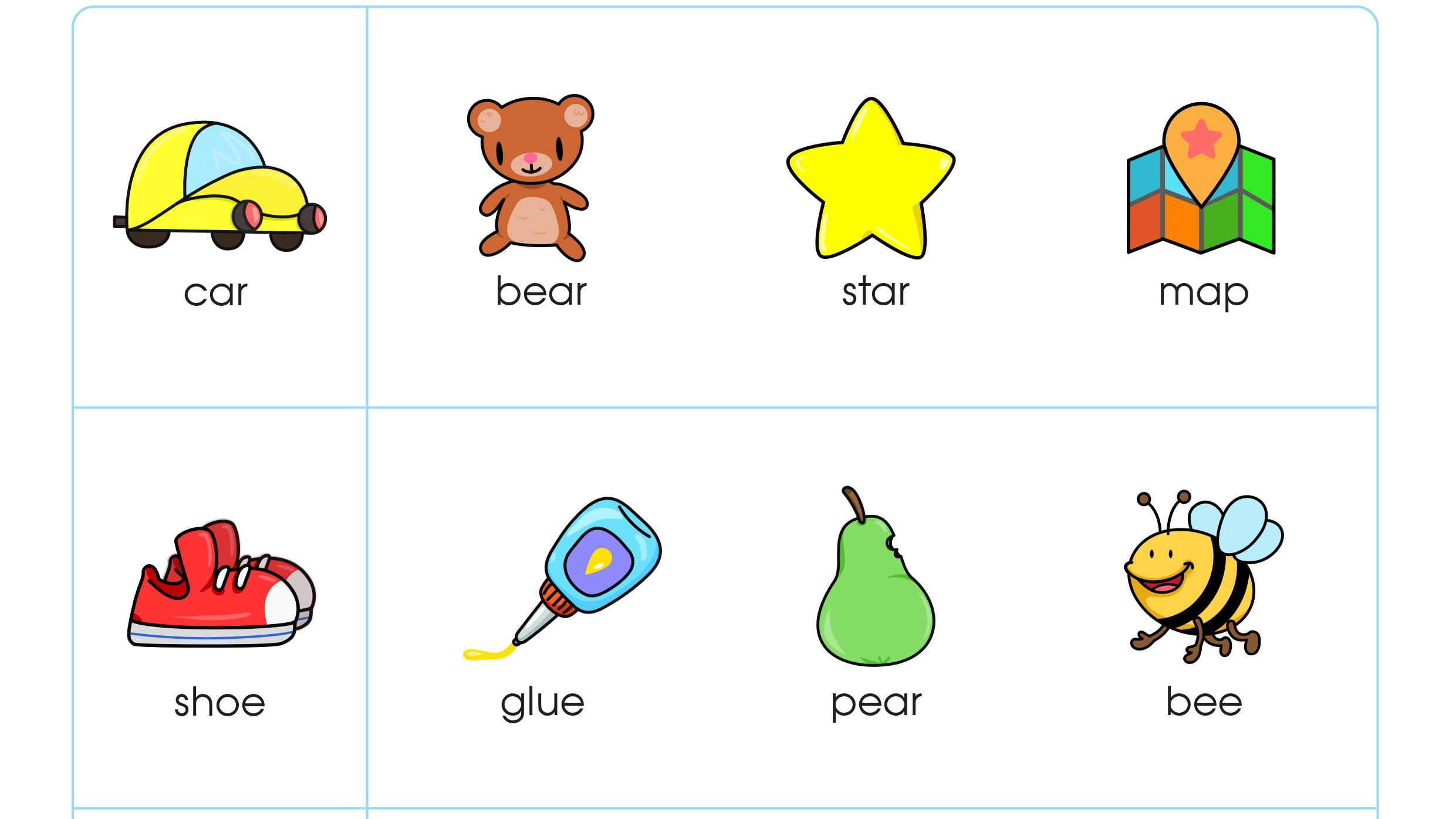Vocabulary improvement Reading Worksheets for Ages 3-8
3 filtered results
-
From - To
Enhance your child’s language skills with our engaging Vocabulary Improvement Reading Worksheets tailored for ages 3-8. Designed to boost word recognition, comprehension, and usage, these printable exercises make learning fun and interactive. Perfect for early readers, each worksheet is crafted to expand vocabulary, promote reading confidence, and support overall literacy development. Whether at home or in the classroom, our expertly created resources cater to specific age groups and learning styles, ensuring effective and enjoyable practice. Explore our extensive collection today to unlock your little one's full language potential and nurture a lifelong love of reading.


More Rabbit Facts Worksheet


Story Elements: Setting of a Fairy Tale Printable


Ben Franklin Part 2 Worksheet
Vocabulary improvement during the crucial developmental window of ages 3-8 plays a vital role in a child's overall growth. For parents and teachers, emphasizing vocabulary enrichment isn't just about expanding a child's word bank—it's about laying a solid foundation for future learning and communication skills.
First, a robust vocabulary enhances reading comprehension. Children who grasp more words can better understand the texts they encounter, fostering a love for reading and learning. This readiness is significant for academic success across all subjects, not just language arts.
Second, language skills are intrinsically linked to cognitive development. As children learn new words, they also learn to categorize concepts, form more complex thoughts, and make connections between different pieces of information.
Moreover, honing vocabulary equips children with the tools to effectively express their thoughts, emotions, and needs. This not only aids socialization and relationship building with peers and adults but also instills confidence.
Parents and teachers have the unique opportunity to introduce diverse words through engaging activities like storytelling, reading, games, and everyday conversations. This immersive approach makes vocabulary learning enjoyable and organic, creating a rich linguistic environment conducive to early education.
Thus, focusing on vocabulary improvement garners lifelong benefits, ensuring that children are better prepared for their academic journeys, social interactions, and intellectual endeavors.

 Assign to My Students
Assign to My Students
















